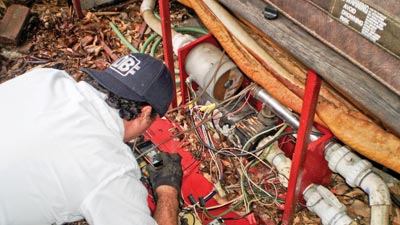Texas pool professionals should not be allowed to do electrical work on commercial pools and spas, according to a recent published opinion from the state’s attorney general.
Though the opinion does not constitute a new statute, it does represent the attorney general’s official interpretation of an existing law, developed at the request of other state officials. Thus, it sets a precedent that’s likely to influence the decisions of judges and other enforcement officers.
“Until this opinion was published, a lot of people in the industry were working under the assumption that the scope of our license included some commercial work,” said Kevin Tucker, information officer at the Aquatic Professionals Education Council, a statewide pool and spa industry advocacy group.
Since March 2010, every pool technician who performs electrical work has been required to earn an updated Texas Residential Appliance Installer license by passing an exam based on the 2008 National Electrical Code handbook. Until now, most had assumed the license allowed them to perform any electrical work specifically related to a pool or spa — whether the site was residential or commercial.
“The way we originally understood the law,” Tucker said, “was that if there was a sub-panel in the breaker box that was labeled as being for pool and spa equipment, we could work on anything wired into that panel. If there wasn’t a sub-panel, then we couldn’t work on any wiring in the main breaker panel.” In short, pool technicians believed they were licensed to perform work on any electrical components that were wired separately from the site’s main power grid.
Many in the industry agreed this was an ideal scope for a pool electrical license because it covered the vast majority of electrical work performed by service techs in both commercial and residential sites. In fact, techs say that even before the license was required, they referred most complex or involved electrical work to licensed electricians.
But instead of differentiating between pool wiring and the main breaker panel, the attorney general’s new opinion draws an entirely different distinction — between all residential and commercial electrical work.
For example, the opinion would consider work on a 5-hp motor in a residential backyard to be legal, but would consider work on the exact same 5-hp motor at an apartment complex to be outside the scope of the RAI license. For techs whose income depends on small and mid-sized commercial clients, this could represent a significant setback in the road to licensing.
That’s why APEC’s lobbyists are planning to raise discussion about the opinion in this year’s legislative session.
“APEC respects the opinion, but strongly disagrees with the limited review and technical reading that led to the conclusion,” said Jake Posey, a lobbyist for the group. “We — and thousands of pool professionals across the state — look forward to obtaining relief from the Texas legislature.”



